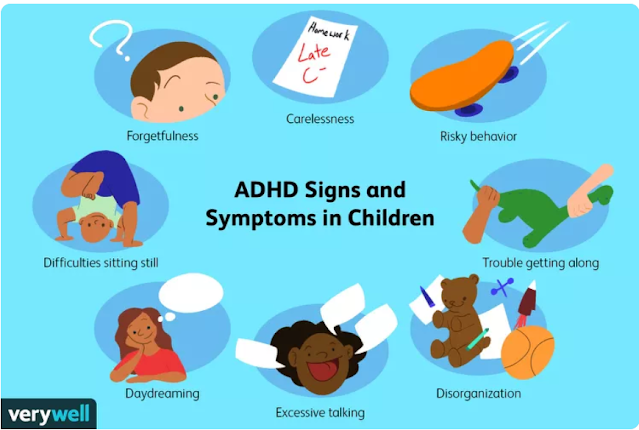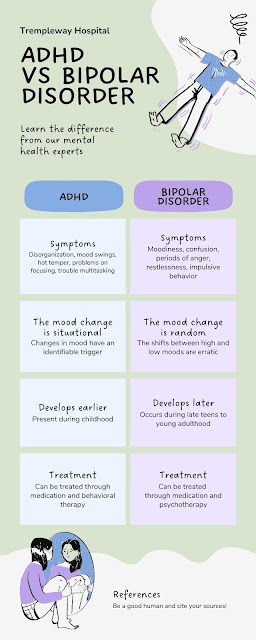Attention-deficit/hyperactivity disorder (ADHD)
is a common neurodevelopmental disorder that affects both children and adults. It is characterized by symptoms of inattention, hyperactivity, and impulsivity, which can cause significant impairment in daily functioning. As a family doctor, I have seen many patients with ADHD and have witnessed the impact it can have on their lives. In this article, I will discuss the signs, symptoms, age factors, causes, genetic factors, discovery, medical help, treatment, medications, and follow-up for ADHD.
Signs and Symptoms
The signs and symptoms of ADHD can vary depending on the individual and their age. In children, the symptoms may include:
Difficulty paying attention to details and making careless mistakes
Trouble staying focused on tasks or activities
Forgetfulness and losing things
Difficulty following instructions
Fidgeting or squirming in their seat
Talking excessively
Interrupting or intruding on others
In adults, the symptoms may include:
Difficulty with organization and time management
Procrastination and difficulty starting tasks
Trouble with multitasking
Restlessness and difficulty relaxing
Impulsivity and acting without thinking
Difficulty with relationships
Age Factors
ADHD is typically diagnosed in childhood, but it can also affect adults. The symptoms may be different depending on the age of the individual. In children, the symptoms often manifest as hyperactivity and impulsivity, while in adults, the symptoms may be more related to inattention and difficulty with organization.
Causes and Genetic Factors
The exact causes of ADHD are not fully understood, but research has shown that there may be genetic factors involved. Studies have found that ADHD tends to run in families, and that certain genes may be involved in the development of the disorder. Environmental factors, such as exposure to toxins or poor nutrition during pregnancy, may also play a role in the development of ADHD.
Discovery and Medical Help
ADHD is typically diagnosed by a healthcare provider based on a thorough evaluation of the individual's symptoms and medical history. This may include interviews with the individual, their family, and their teachers or coworkers. There are also standardized rating scales that can be used to assess symptoms of ADHD.
If you suspect that you or your child may have ADHD, it is important to seek medical help. A healthcare provider can help to determine if ADHD is the cause of the symptoms and can provide guidance on the best course of treatment.
Treatment and Medications
There are several treatment options available for ADHD, including medication, behavioral therapy, and lifestyle changes. Medications such as stimulants and non-stimulants can help to improve attention and reduce hyperactivity and impulsivity. Behavioral therapy, such as cognitive-behavioral therapy and parent training, can help individuals with ADHD learn new skills and strategies for managing their symptoms. Lifestyle changes, such as exercise and a healthy diet, can also be beneficial for individuals with ADHD.
Follow-Up
Following a diagnosis of ADHD, it is important to have regular follow-up appointments with a healthcare provider. This can help to ensure that the individual is receiving the appropriate treatment and that their symptoms are being effectively managed. Regular follow-up appointments can also provide an opportunity to adjust medications or treatment strategies if needed.
In conclusion, ADHD is a common neurodevelopmental disorder that can have a significant impact on daily functioning. If you or your child is experiencing symptoms of ADHD, it is important to seek medical help. Treatment options are available, including medication, behavioral therapy, and lifestyle changes, and regular follow-up with a healthcare provider can help to ensure that symptoms are effectively managed. If you suspect that you or your child may have ADHD, don't hesitate to speak with a healthcare provider to get the help you need.






.jpg)



0 Comments